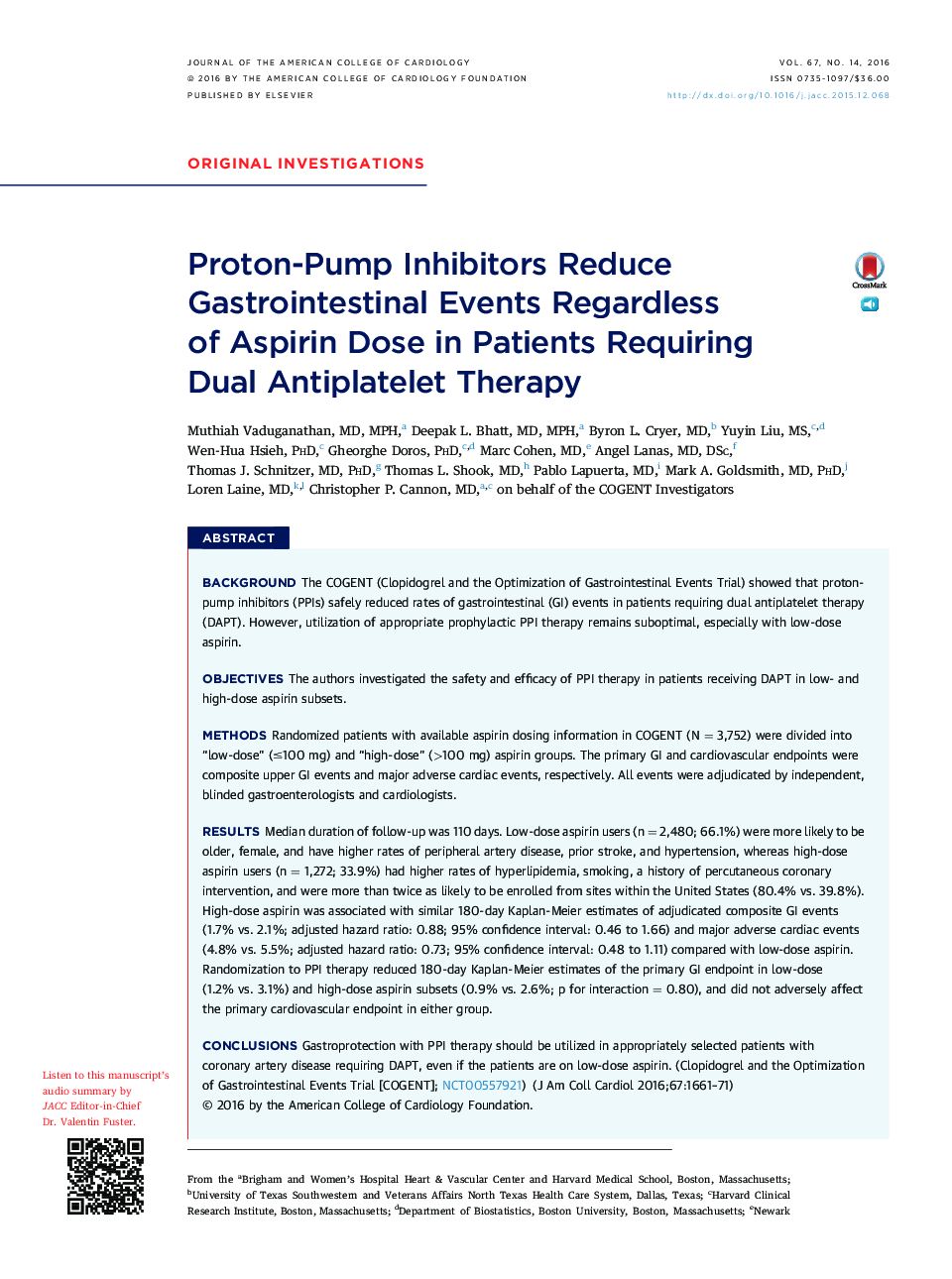| کد مقاله | کد نشریه | سال انتشار | مقاله انگلیسی | نسخه تمام متن |
|---|---|---|---|---|
| 2942963 | 1576999 | 2016 | 11 صفحه PDF | دانلود رایگان |
BackgroundThe COGENT (Clopidogrel and the Optimization of Gastrointestinal Events Trial) showed that proton-pump inhibitors (PPIs) safely reduced rates of gastrointestinal (GI) events in patients requiring dual antiplatelet therapy (DAPT). However, utilization of appropriate prophylactic PPI therapy remains suboptimal, especially with low-dose aspirin.ObjectivesThe authors investigated the safety and efficacy of PPI therapy in patients receiving DAPT in low- and high-dose aspirin subsets.MethodsRandomized patients with available aspirin dosing information in COGENT (N = 3,752) were divided into “low-dose” (≤100 mg) and “high-dose” (>100 mg) aspirin groups. The primary GI and cardiovascular endpoints were composite upper GI events and major adverse cardiac events, respectively. All events were adjudicated by independent, blinded gastroenterologists and cardiologists.ResultsMedian duration of follow-up was 110 days. Low-dose aspirin users (n = 2,480; 66.1%) were more likely to be older, female, and have higher rates of peripheral artery disease, prior stroke, and hypertension, whereas high-dose aspirin users (n = 1,272; 33.9%) had higher rates of hyperlipidemia, smoking, a history of percutaneous coronary intervention, and were more than twice as likely to be enrolled from sites within the United States (80.4% vs. 39.8%). High-dose aspirin was associated with similar 180-day Kaplan-Meier estimates of adjudicated composite GI events (1.7% vs. 2.1%; adjusted hazard ratio: 0.88; 95% confidence interval: 0.46 to 1.66) and major adverse cardiac events (4.8% vs. 5.5%; adjusted hazard ratio: 0.73; 95% confidence interval: 0.48 to 1.11) compared with low-dose aspirin. Randomization to PPI therapy reduced 180-day Kaplan-Meier estimates of the primary GI endpoint in low-dose (1.2% vs. 3.1%) and high-dose aspirin subsets (0.9% vs. 2.6%; p for interaction = 0.80), and did not adversely affect the primary cardiovascular endpoint in either group.ConclusionsGastroprotection with PPI therapy should be utilized in appropriately selected patients with coronary artery disease requiring DAPT, even if the patients are on low-dose aspirin. (Clopidogrel and the Optimization of Gastrointestinal Events Trial [COGENT]; NCT00557921)
Journal: Journal of the American College of Cardiology - Volume 67, Issue 14, 12 April 2016, Pages 1661–1671
